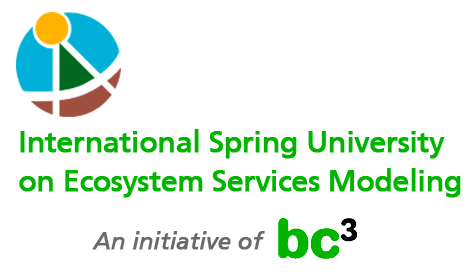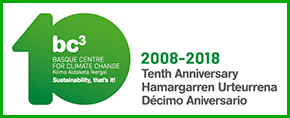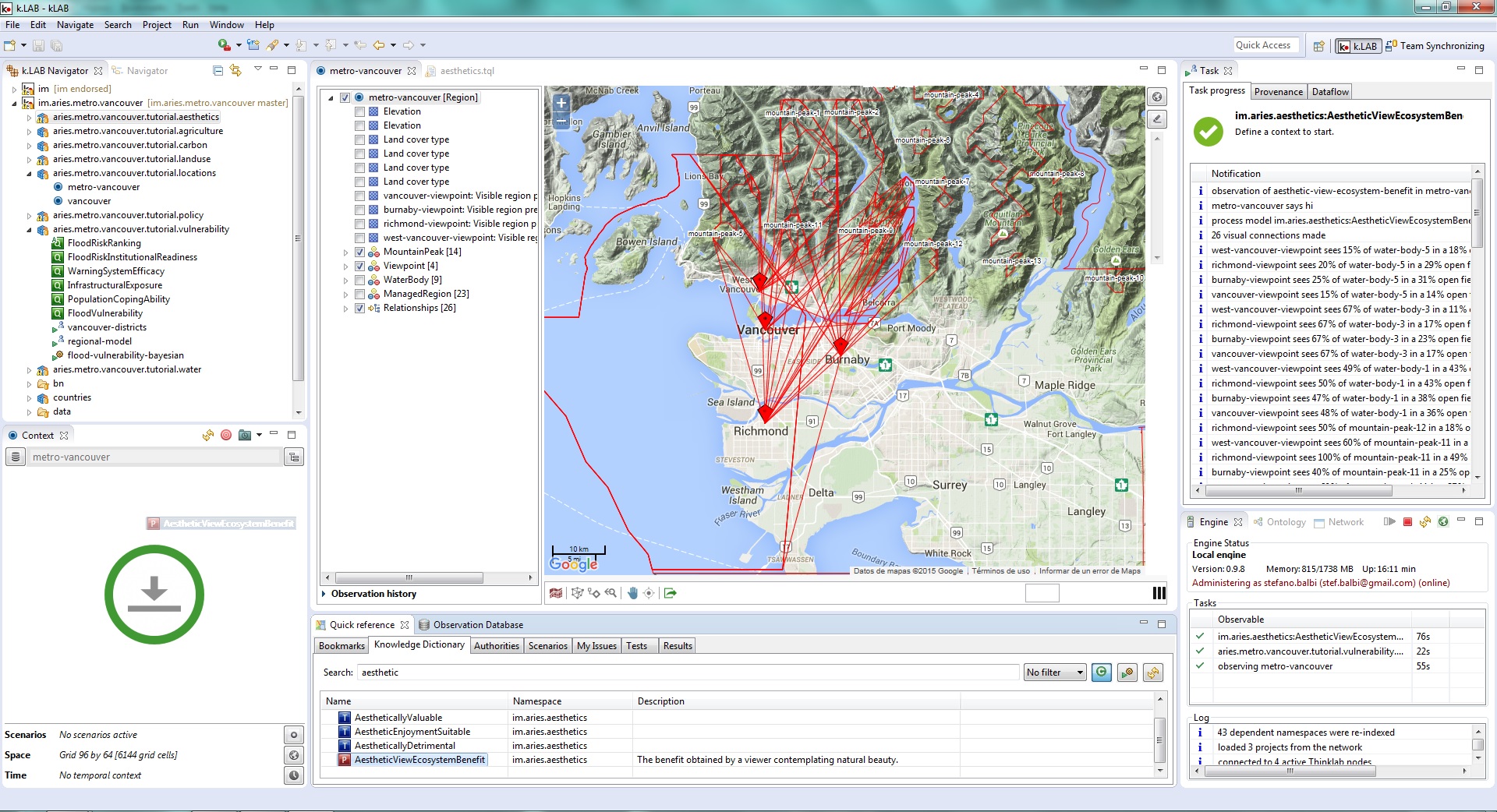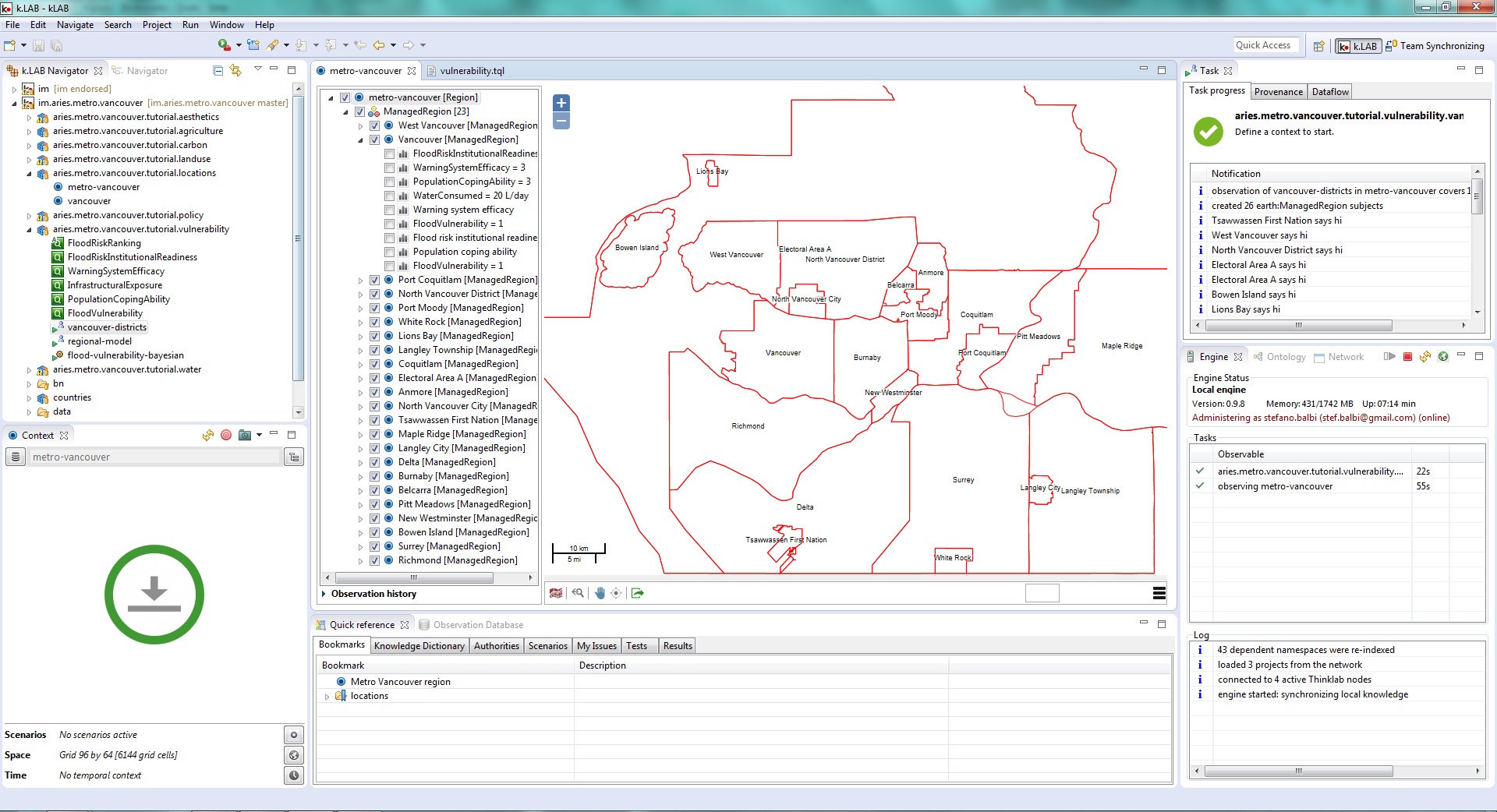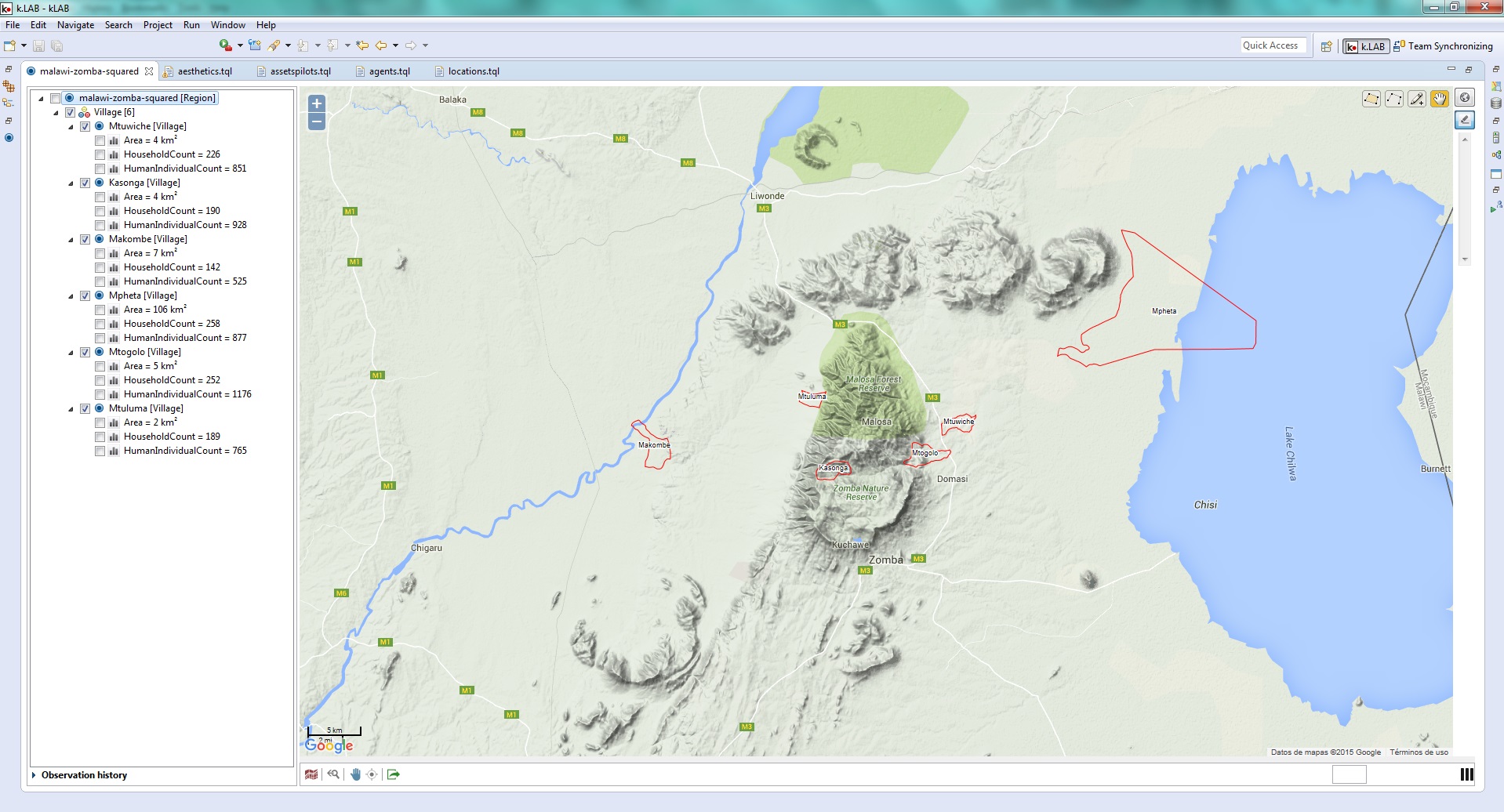Coupled human-environmental systems are complex and adaptive systems where social (human) and ecological (biophysical) agents are interacting at multiple temporal and spatial scales. The exploration of systemic sustainability requires the analysis of the endogenous feedbacks between socio-economic and biophysical processes and their co-evolution by means of an integrated approach.
Ecosystem services are the benefits provided to humans by nature: they involve both the provision of valuable natural resources (water, food, aesthetic views, etc.) and the prevention of damages (from flooding, sediment deposition, biological invasions, etc.). The school will teach a unified approach to the understanding and management of ecosystem services as an integrated problem.
The course participants will learn to express a problem, ranging from biophysical modeling of ecosystems’ flow dynamics to the economic and societal complex interdependencies, using a state-of-the-art high level modeling language that enables the integration of many different models and the analysis of alternative scenarios. Models developed during the course will become part of the ARIES model base, which includes both global models that work worldwide and specific models that more accurately describe local conditions. The school will enable participants to independently create, run and analyze models and scenarios. Models developed in this way can also be disseminated and run by remote users through the World Wide Web.
The ARIES team combines an innovative simulation platform and a domain-specific programming language to address the task of integrated social ecological systems. Our approach reconciles strong semantics with modelling practice to achieve advantages (such as modularity, flexibility, validation, and integration of multiple paradigms and spatio-temporal scales) that have largely remained unrealized in environmental modeling to this day. The software and programming language, developed by Prof. Ferdinando Villa, are fully open source. The modelling framework facilitates collaborative model development by using advanced web-based technologies like version control and cloud-based data sharing to accommodate the effective use of big data for environmental analysis.
